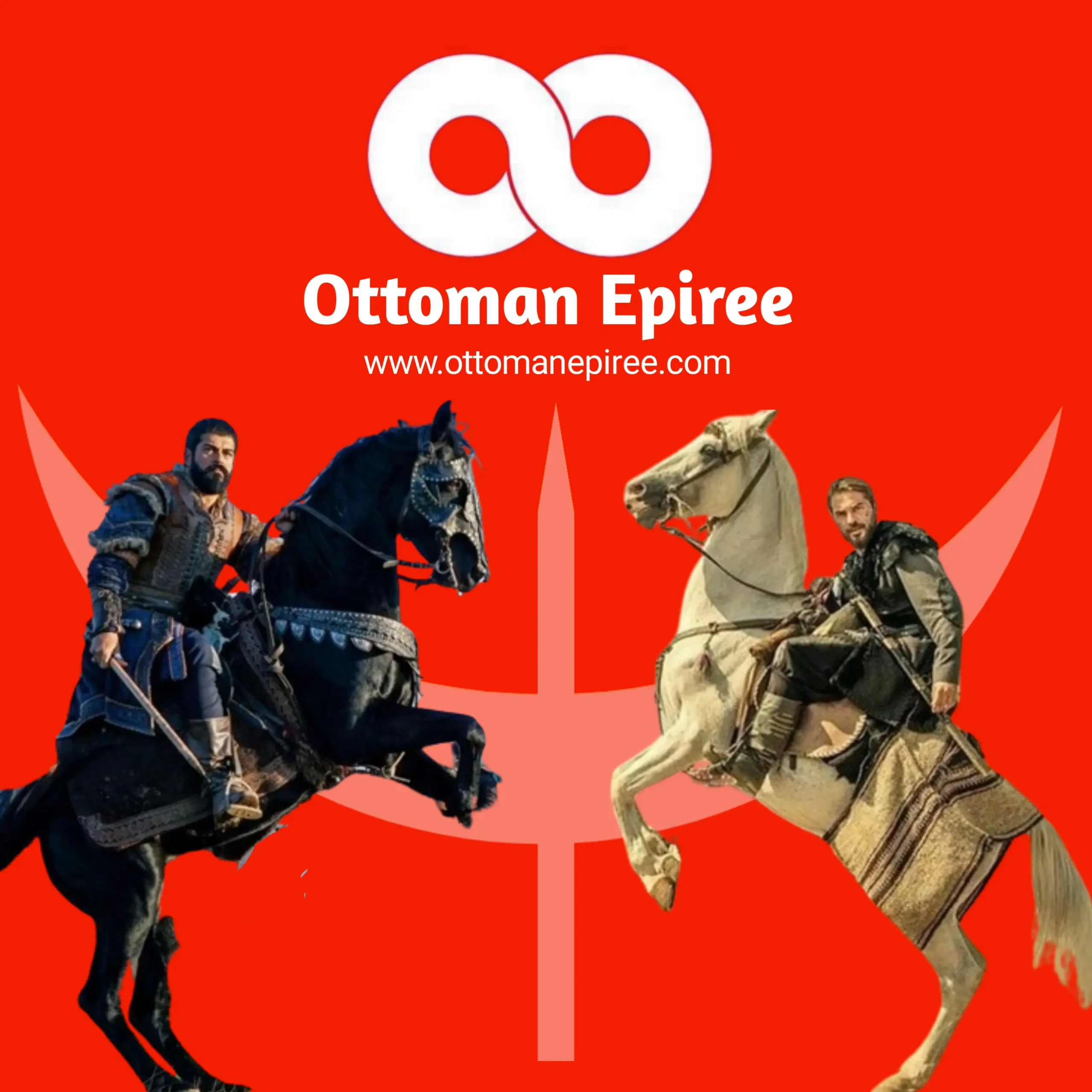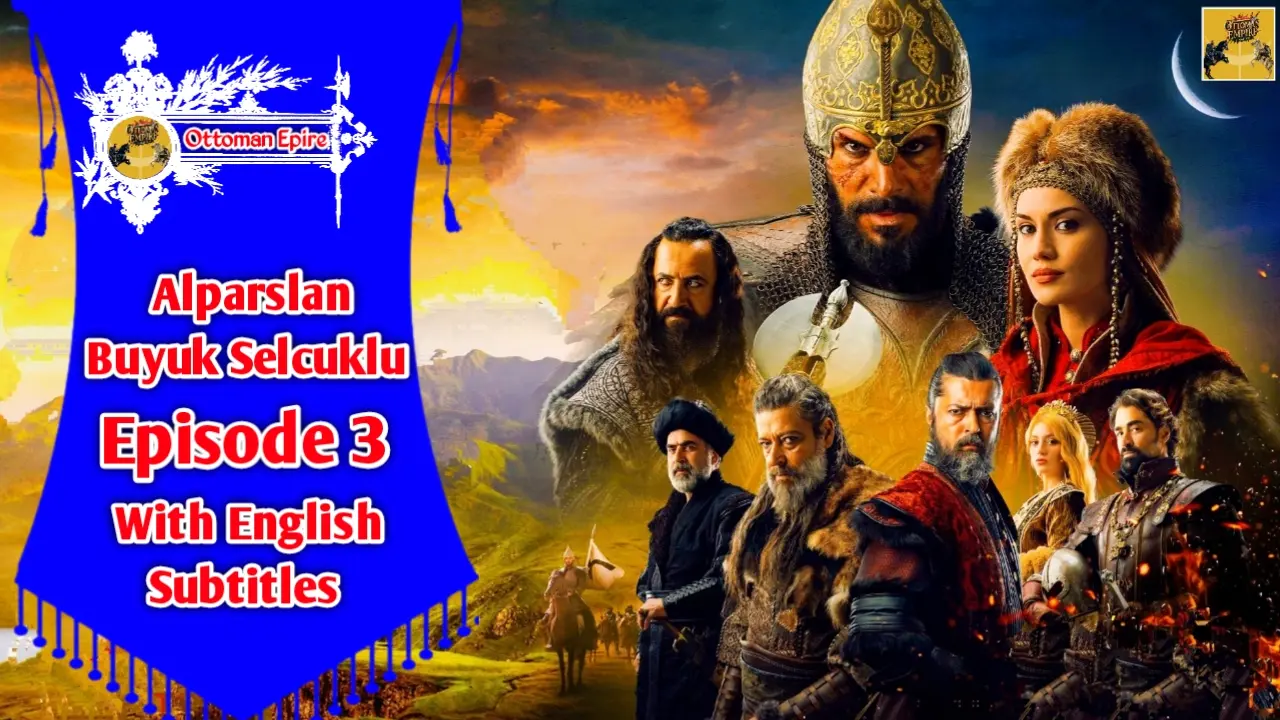Alparslan Buyuk Selcuklu Season 1 Episode 3
Alparslan Episode Analysis: Yannis’ Treachery and Alparslan’s Strategic Resolve
The latest episode of Alparslan Büyük Selçuklu takes viewers on a whirlwind journey of emotions, strategic maneuvering, and intense character dilemmas. From the shocking discovery of Yannis’ emblem at the massacre site to the complex decisions facing Akça, this episode blends historical intrigue with personal stakes. With tension escalating between the Seljuks and the Byzantines, Alparslan is once again at the center of a dangerous game, where intelligence, courage, and calculated strategy are the keys to survival and justice.
Alparslan Buyuk Selcuklu Season 1 Episode 3
Key Episode Highlights Table
| Main Event | Details | Impact | Character Involved |
|---|---|---|---|
| Discovery of Yannis’ Emblem | Alparslan finds Yannis’ insignia at the massacre site | Fuels Alparslan’s anger and motivates him to take decisive action | Alparslan |
| Kekavmenos’ Misjudgment | Blames Seljuks instead of Yannis | Creates confusion in the Byzantine leadership | Kekavmenos |
| Akça’s Family Revelation | Learns Hasan is his father | Emotional conflict between duty and personal desire | Akça |
| Bozan’s Conspiracy | Plots against Alparslan due to jealousy | Heightens political tension and sets up future conflict | Bozan |
Unraveling the Episode: A Story of Revenge and Justice
The episode begins with a gripping moment as Alparslan uncovers Yannis’ emblem at the scene of a brutal massacre. This revelation sets the stage for the intense emotions that follow. The scene is more than just a plot device; it symbolizes the lingering threat of betrayal and the complexities of uncovering the truth amidst political chaos. Alparslan’s immediate reaction—an amalgam of righteous anger and strategic foresight—illustrates his role as both a warrior and a tactician.
Meanwhile, Kekavmenos’ failure to identify the true culprit adds a layer of dramatic irony. By accusing the Seljuks, he inadvertently complicates the Byzantine command structure, showing how misinformation can escalate tensions in war. This misjudgment underscores the recurring theme of perception versus reality, a motif that resonates throughout historical and modern conflicts alike.
Akça’s Personal Dilemma: Duty vs. Desire
One of the most compelling elements of this episode is Akça’s internal conflict. Learning that Hasan is his father throws him into a whirlwind of emotions. The narrative explores the universal human struggle between personal desires and societal duties. Akça’s indecision provides viewers with a nuanced portrayal of character psychology, highlighting the complexities that make historical dramas resonate on a deeply personal level.
His struggle is more than familial; it reflects the broader theme of loyalty to ideals versus loyalty to loved ones. This tension enriches the storytelling, making Akça’s choices feel weighty and realistic. Audiences are invited to empathize with his dilemma, prompting discussions on morality, obligation, and identity.
Political Intrigue and Byzantine Confusion
The episode also delves into the Byzantine perspective. The massacre leads to chaos within Kekavmenos’ ranks as he attempts to assign blame and restore order. By involving Evdokya and Dukas, he demonstrates the Byzantine reliance on political maneuvering rather than immediate justice. This subplot offers a glimpse into medieval administrative systems and the fragile balance between authority and competence in ruling structures.
Bozan’s growing resentment toward Alparslan adds another dimension of political tension. Removed from his position due to suspicion, Bozan’s desire for revenge introduces an undercurrent of internal conspiracy. The episode expertly weaves these multiple layers, reminding viewers that the battlefield extends beyond armies to include power struggles within and between factions.
Alparslan’s Strategy: Courage Meets Cunning
The narrative highlights Alparslan’s intelligence and strategic foresight. His plan to expose Yannis as the true perpetrator is fraught with danger, yet it showcases his ability to think several steps ahead. Here, the series effectively blends historical military tactics with character-driven storytelling. Alparslan’s approach reflects a leader who balances valor with calculated risk—a theme central to the Seljuk legacy and one that continues to inspire viewers fascinated by history and leadership.
“Justice is not given; it is seized with courage and wisdom.” – Alparslan
Cultural and Historical Significance
While the episode dramatizes events for entertainment, it also offers subtle historical insights. The conflicts between the Seljuks and Byzantines depicted here are grounded in historical tensions of the era. Such storytelling allows modern audiences to engage with medieval political and military structures while reflecting on the human experiences of honor, loyalty, and justice that transcend time.
The inclusion of personal dilemmas alongside grand-scale warfare reinforces the idea that historical events are not just about battles and victories—they are also about the individuals who navigate these turbulent times.
Character Development: Emotional Depth and Growth
The episode excels in exploring the psychology of its characters. Akça’s inner conflict, Alparslan’s strategic determination, and Bozan’s vengeful plotting collectively create a rich tapestry of human emotion and moral complexity. These elements elevate the narrative, ensuring that the series is more than a historical reenactment; it becomes a study of human decision-making under pressure.
Symbolism and Hidden Meanings
The emblem of Yannis discovered by Alparslan serves as a symbol of hidden truths waiting to be uncovered. It represents not only the concrete evidence of betrayal but also the broader theme of accountability in leadership. Similarly, the chaotic Byzantine response highlights the consequences of failing to address misdeeds promptly—a lesson that resonates in modern organizational and political contexts.
Audience Engagement: Reactions and Speculation
Fans of the series are likely to have strong reactions to this episode. Discussions online may center around whether Akça will prioritize his duty or personal desire, how Alparslan’s plan will unfold, and the implications of Bozan’s conspiracy. Episodes like this drive engagement by combining suspense, ethical dilemmas, and intricate plotting—elements that keep viewers invested and eager for the next installment.
Predictions and Future Implications
Looking ahead, the revelations and conflicts in this episode set the stage for intense future developments. Alparslan’s efforts to prove Yannis’ guilt will likely trigger further political and military confrontations. Meanwhile, Akça’s personal journey may influence alliances and decisions within the Seljuk camp. The unresolved tensions with Bozan promise additional intrigue, ensuring that audiences remain captivated.
Conclusion
This episode of Alparslan: Büyük Selçuklu masterfully blends action, strategy, and human emotion. It underscores the series’ strength in portraying historical events through a lens of character-driven storytelling, providing both entertainment and insight into medieval politics, loyalty, and morality.
What do you think about Alparslan’s plan to expose Yannis? Will Akça make the right choice between duty and family? Share your thoughts in the comments below!
Episode Summary in Bullet Points
- Alparslan discovers Yannis’ emblem at the massacre site.
- Kekavmenos mistakenly blames the Seljuks, causing Byzantine confusion.
- Akça learns Hasan is his father, creating an emotional dilemma.
- Bozan, stripped of his position, plots against Alparslan.
- Alparslan devises a risky plan to expose Yannis as the culprit.
- The massacre impacts both Seljuk and Byzantine sides.
- Rey and Merv Obası mourn the loss of their people.
- Tension builds around political and personal loyalties.
- The episode highlights strategic thinking and leadership challenges.
- Viewers are left anticipating the outcome of Alparslan’s plan.
Frequently Asked Questions (FAQs)
A1: Yannis is revealed as the mastermind, while Kekavmenos initially misplaces blame on the Seljuks.
A2: He faces a deep personal conflict between his duties and his longing for family.
A3: Bozan, stripped of authority, plots revenge against Alparslan.
A4: He formulates a careful plan that combines intelligence gathering and calculated risk.
A5: The massacre and ensuing confusion intensify military and political tensions between the two sides.
- Alparslan Buyuk Selcuklu Season 1 Episode 2 Secrets unfold as Alparslan seeks justice
- Alparslan Buyuk Selcuklu Season 1 Episode 1 Rise of a Legendary Leader
- Alparslan Buyuk Selcuklu From Dreams to Destiny
- Selahaddin Eyyubi Season 2 Episode 31 Bakras Fortress And Betrayals
- Mehmed Fetihler Sultani Season 2 Episode 17 Trials of Loyalty and Leadership

